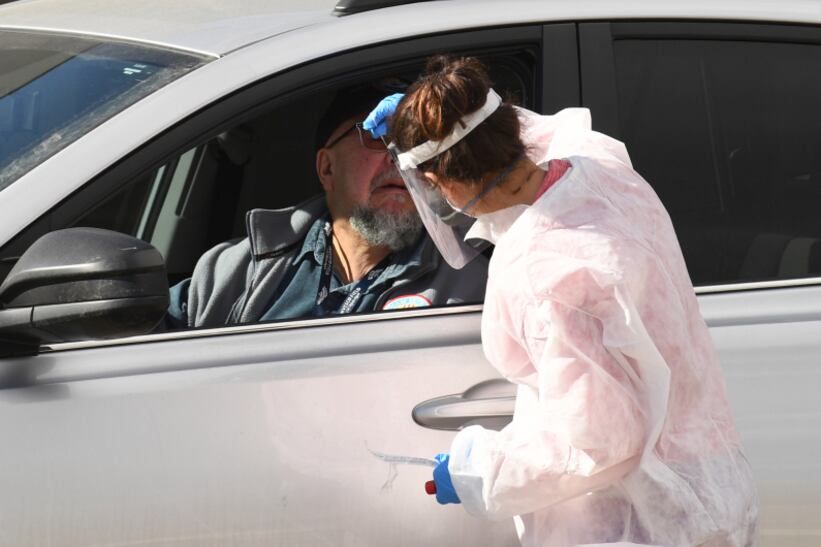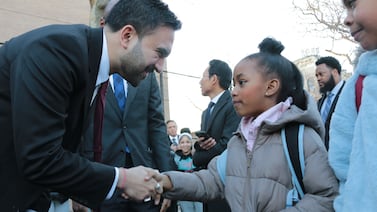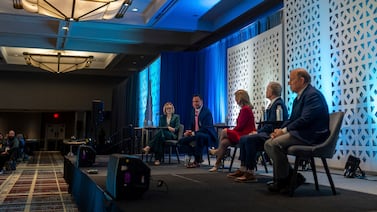The Aurora school district has signed a COVID-19 testing and tracing partnership that promises teachers who return to their classrooms this fall can be tested for the virus every two weeks.
Danette Lippman, the district’s director of health services, said Tuesday in a virtual webinar to Aurora staff that “the gold standard” to safely reopen would be “having the capacity to aggressively and regularly test staff.”
The Aurora district, like several others that have announced plans in Colorado, is expecting to allow students to return to school buildings this fall, five days a week. Teachers across the country have been raising concerns about the safety of returning.
Aurora’s school district is partnering with COVIDCheck Colorado, an organization just started by nonprofit Gary Community Investments, to offer testing and help with tracing and tracking outbreaks. The contract will cost Aurora Public Schools approximately $720,000 for six months.
District officials had announced they were working on such a plan, but just finalized it with school board approval Friday afternoon.
Mike Johnston, the CEO of Gary Community Investments, told the Aurora school board that this plan would make Aurora the “most aggressive district in the state in terms of looking out for the health of your employees.”
He also said other school districts and colleges are considering similar plans.
Board members had a handful of questions but all voted in favor of the contract.
The plan will be optional. To sign up, employees must sign waivers that, among other things, will give the district access to the results. The contract includes access to a dashboard that tracks aggregate data on testing and that has a symptom tracker, that could eventually also be rolled out for students.
School-based employees who sign up could get tested every two weeks for free. COVIDCheck Colorado promises to deliver test results within 24 to 48 hours. Other district staff who don’t interact with students could get tested monthly. Officials also said staff who develop symptoms might have opportunities to get tested immediately.
Staff who sign up for the regular testing will also have the option of turning on a bluetooth feature on their phone to allow officials to track contacts. Someone who tests positive would be flagged and the system would notify those who’ve recently been within 6 feet of that phone that they may have been exposed and should be tested themselves.
COVIDCheck Colorado plans to have a medical professional call each person who tests positive to deliver the results.
Protocols about who would be sent home to isolate will depend on guidance from Tri-County Health officials and a determination of who the person exposed in each case, Superintendent Rico Munn said.
In returning students to school buildings, the district will use a “cohort model” to group students and staff and try to limit their exposure to other groups, so that it may be easier to limit the number of students or staff who have to switch to remote learning after an exposure.






